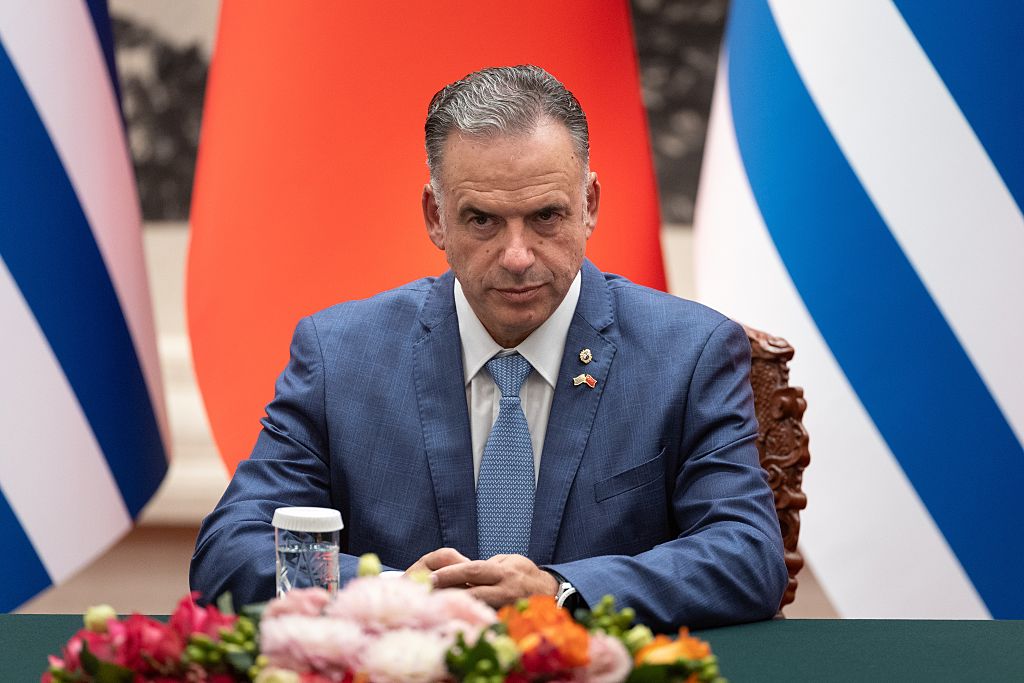One Year Later: Haiti Hamstrung by Reconstruction and Elections
One Year Later: Haiti Hamstrung by Reconstruction and Elections
Recovery efforts have been sluggish and a runoff election may see delays that could further undermine progress. But some observers note that goals set for rebuilding after last year's earthquake were overly ambitious.
One year after a devastating January 12 7.0-magnitude earthquake, lagging recovery efforts, disputed elections, and a deadly outbreak of disease have created an atmosphere of disappointment and frustration in Haiti. Claiming an estimated 230,000 lives, the earthquake left the country’s infrastructure and institutions in ruins, and the 12 months of reconstruction efforts that followed have been racked with claims of inefficiencies. Furthermore, a creeping cholera epidemic and claims of fraudulent voting continue to aggravate the situation in the battered country.
With one million Haitians still living in tents, many feel that donors and NGOs have not accomplished enough in the year since the earthquake struck. Critics claim the “cluster system” used by relief agencies to group together and manage recovery efforts is at times dysfunctional and opaque while deterring local civil society groups from participation. In an October 2010 policy paper, Refugee International recommends a "concerted effort” from the international community to “bring Haitian civil society and organized camp leadership into the recovery and transition planning.” In a January 2011 report, UNICEF, the UN’s child-welfare body, states: “One year on, bottlenecks to reconstruction have been underestimated and are now weighing on the pace of progress.”
But, given that promises initially pledged at donor conferences were ambitious and optimistic, critics should take a more realistic perspective on progress, argues Charles Kenny on ForeignPolicy.com. Speaking at a January 10 news conference, UN Humanitarian Coordinator for Haiti Nigel Fisher said: “Obviously, things could have gone quicker but I think it is important to remember that reconstruction takes time.”
The lack of strong government institutions prior to the disaster is considered one of the main reasons why coordination has not been more efficient. In a January 10 interview, Thomas C. Adams, the U.S. State Department’s special coordinator for Haiti, described the complex situation prior to the earthquake: “[S]ix out of seven people in Port-au-Prince lived in miserable slums without access to clean water.” He added that progress is likely to be seen “in the next two or three years. But it’s not the kind of thing that happens overnight, unfortunately.” Cholera also continues to blight the population, leaving 3,651 dead as of January 1, 2011.
Adding to the country’s challenges, a presidential runoff vote, scheduled for January 16, may be held back until late February following an Organization of American States’ (OAS) review of disputed November 28 presidential election results, which were mired by accusations of irregularities and vote rigging and led to protests across the country. Haitians were originally due to vote for a new president in February 2010, but that vote was delayed due to the earthquake. The OAS panel concluded that Michel `"Sweet Micky'' Martelly, a popular musician who came in third, should move on to the second round rather than the government-picked candidate Jude Célestin, citing new tallies that eliminated fraudulent votes and irregularities. The panel did not, however, recommend new elections be held due to their prohibitive cost and concerns they would subject Haitians to a “further lapse in constitutional governance,” as quoted by an Associated Press writer with access to the as-yet undistributed report.
The final decision on the election lies with Haiti’s electoral council, which must take into account the break in momentum a change in results could have on relief and development efforts. Revised election results also risk leading the Caribbean country into further civil unrest. Outgoing President René Préval, addressing his country on January 1 for Independence Day, surmised the current state of affairs in Haiti by warning that the country had reached what he described as a "dangerous crossroads."
Learn More:
- Join Council of the Americas' Washington office for a January 20 panel discussion on the Haitian recovery.
- Interim Haiti Recovery Commission website.
- The Government of Haiti’s Action Plan for reconstruction.
- UN Office for the Coordination of Humanitarian Affairs’ resource guide to Haiti.
- UN Stabilization Mission in Haiti’s website.
- The Pan American Health Organization’s Haiti page.
- U.S. State Department briefing on the one-year anniversary of the earthquake.
- The Haitian Provisional Election Council press release regarding the disputed election results (en français).
- ForeignPolicy.com offers a photo essay of images from Haiti taken immediately post earthquake and again one year later.
- Download CrowdFlower’s Give Work app for the iPhone and help workers in Haiti make money.







